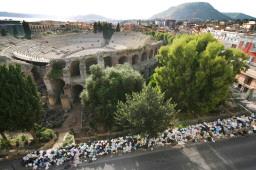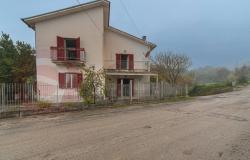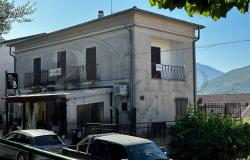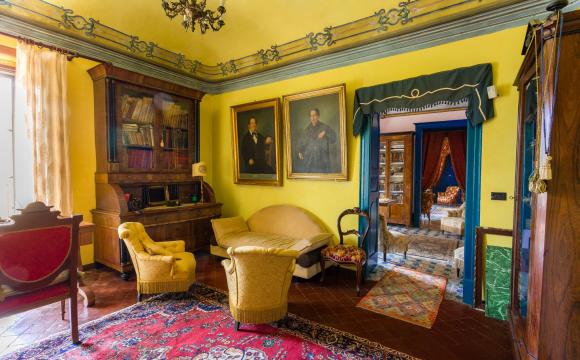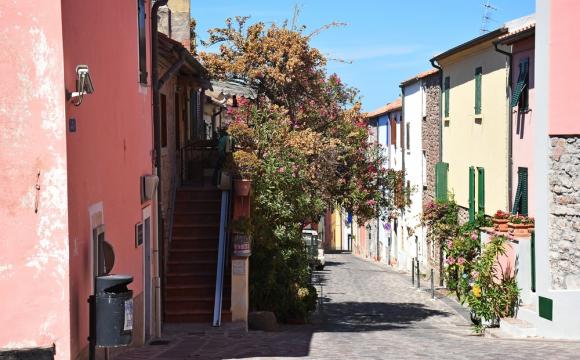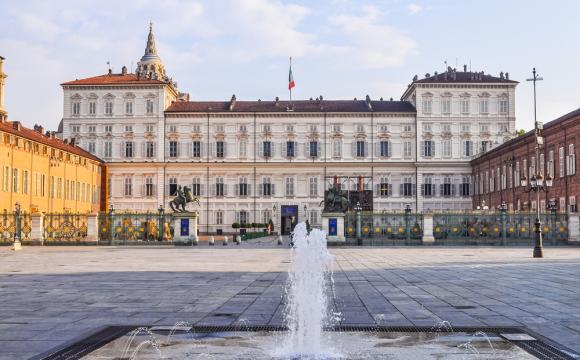Naples is celebrating the ancient origins of the performing arts with a new exhibition that opens Thursday showcasing Greek and Roman mosaics, frescoes and masks with a connection to the theatre.
Among the relics on display at the National Archaeological Museum in Naples are vases painted with scenes from the so-called Phylax comic theatre that developed in Greek colonies in southern Italy.
The vases are the only evidence of the existence of this type of comic theatre, in which ordinary mortals mix with legendary heroes.
Also on show is a set of 15 life-size plaster masks found at Pompeii that is on show to the public for the first time in its entirety.
Experts believe the masks would have provided the models for a craftsman creating terracotta masks for actors to wear.
Included in the group is a 'Bucco', a stock male comic character with a large nose and puffed-out cheeks who played a bragging fool in early Roman farces in the Campania region.
Mosaics and frescoes with theatrical scenes and reproduction masks that would once have decorated gardens and houses and which were found during excavations of Pompeii and other towns buried by the 79 AD eruption of Vesuvius are also on show.
The final section of the show is dedicated to the ancient stone theatres in the Campania region, including the open-air theatre in Neapolis (now Naples) and the 5,000-seater theatre dated to the first century BC in Pompeii, where there is also a small Odeon theatre that seated 1,000 from the second century BC.
'Ancient Theatre and Masks' runs at the National Archaeological Museum in Naples until August 31.
